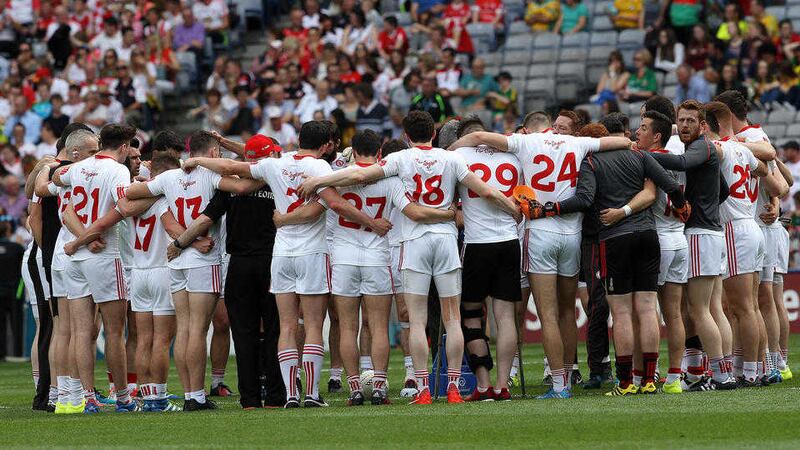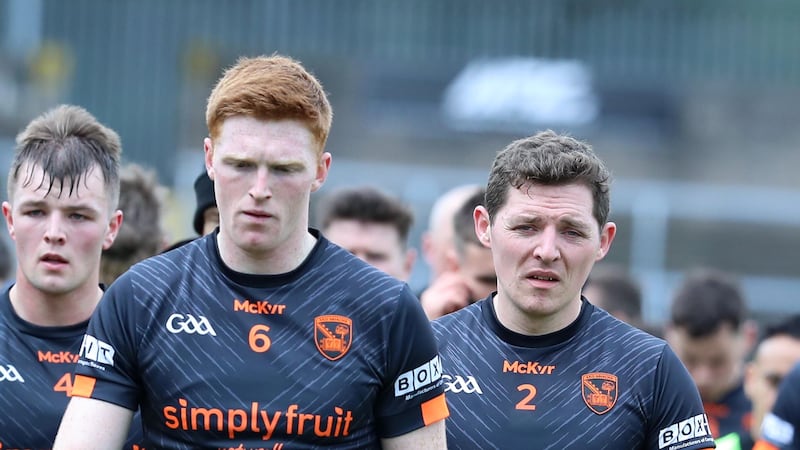IN THE fine print of last Thursday’s announcement of a proposed restructure of the All-Ireland Football Championship lay evidence of how Croke Park has accepted the current situation for club players.
The seven-page, 2,744-word press release contained a series of bullet points, four of which came under the heading ‘supporting clubs’. In his address at the launch of the proposals in Croke Park, the GAA’s director-general Páraic Duffy gave it the hard sell to clubs.
But in doing so, he flashed open the curtains on headquarters’ acceptance of the lack of club action county players see now: “The big point, this is a huge point for me, if you’re a club player, you won’t see your inter-county colleagues as long as the county team is involved. You just won’t see them," Duffy said.
“Clubs get no value out of their county players. They might play the odd league game in some counties, but a lot of them don’t play with their clubs. The time the clubs want their players back is when the county team is over and they can give their full attention to the clubs.
“So the earlier the inter-county season finishes, the better it will be for the clubs. That’s a huge thing in this. We have to condense the season, even if it’s only by three or four weeks. The more teams that are eliminated earlier than at the moment, the better it will be for the club game.”
In a nutshell, he’s saying to clubs: ‘You won’t be seeing these lads at all until the middle of July from now on. Suck it up.’
Different counties have different attitudes to the club game. In Dublin, the county players are strangers on their own home patch. They are Jim Gavin’s from pre-season until September, before returning to their clubs for a knock-out championship. It’s very conceivable some of the Dublin players will play one game for their club in 2016.
Other counties are marginally more laissez faire. Even in Tyrone, players briefly go back to their clubs in the spells between provincial Championship games. Club football means a whole lot to those Tyrone lads, with the pursuit of the O’Neill Cup now something they will very quickly, and very seriously, refocus on.
They would love to play for their clubs more often, but the current calendar simply does not afford them the chance. And these proposed reforms may marginally improve the situation for clubs in counties that don’t reach an All-Ireland quarter-final, but they will have the contrary effect on the stronger sides.
By consequence, the move to have a round-robin stage in place of the All-Ireland quarter-finals will surely impact on provincial and All-Ireland club championships. How the GAA intends to keep its All-Ireland final on the third Sunday in September and implement their calendar year proposals for all games remains a mystery.
What these proposals also don’t solve is the uncertainty for clubs and county boards in terms of when games will be played. Any of the counties with a half-decent chance of provincial success at inter-county level will still start the year not knowing if they can start their club championship in July, August or September.
Clubs do not only want to see their county players back when they can give their full and undivided attention, they would love to see them every weekend. But because it takes from the first weekend in January until the last weekend in June for the very weakest counties to complete their season, there isn’t really much opportunity.
For those who lose in the first round of the Qualifiers, that’s 26 weeks to play 12 games. Therein lies the real issue. Páraic Duffy spoke of condensing the season, but his words were contradicted by the piece of paper in front of him. The GAA plans to bring the start of the Championship forward but, if you don’t bring the end of it forward too, isn’t that actually lengthening the season?
Croke Park palming the blame off on provincial councils for elongating their Championships is utterly bemusing. Basically though, it all revolves around television and attendance figures (aka gate receipts). The more spread out the Championship games are, the more the GAA can sell to RTÉ and Sky Sports.
The Ulster model of one game per weekend has always been lucrative in terms of attendances. It is this that is being allowed to dictate the entire calendar, though. The idea of having a round-robin system in place of the quarter-finals is based around the same two things, TV and footfall. Having a series of games between the top teams in the country will undoubtedly be lucrative for the GAA.
In announcing the recent GAA/GPA deal, the GAA said handing over that money would leave the association no worse off. The obvious summation of that is they plan to make the most of these proposed new quarter-finals when the TV rights are up for bidding in the very near future.
There are suggestions the GAA will invite a third broadcaster into the market to rival RTÉ and Sky Sports. That could help them command a higher premium on the big games in the latter stages. Having the top-eight play each other in a round-robin is what everyone wants to see, but not with the full provincial and backdoor system remaining in place.
This deal does not help the clubs. We can only pray the counties examine it fully before going to congress and turning it away.








